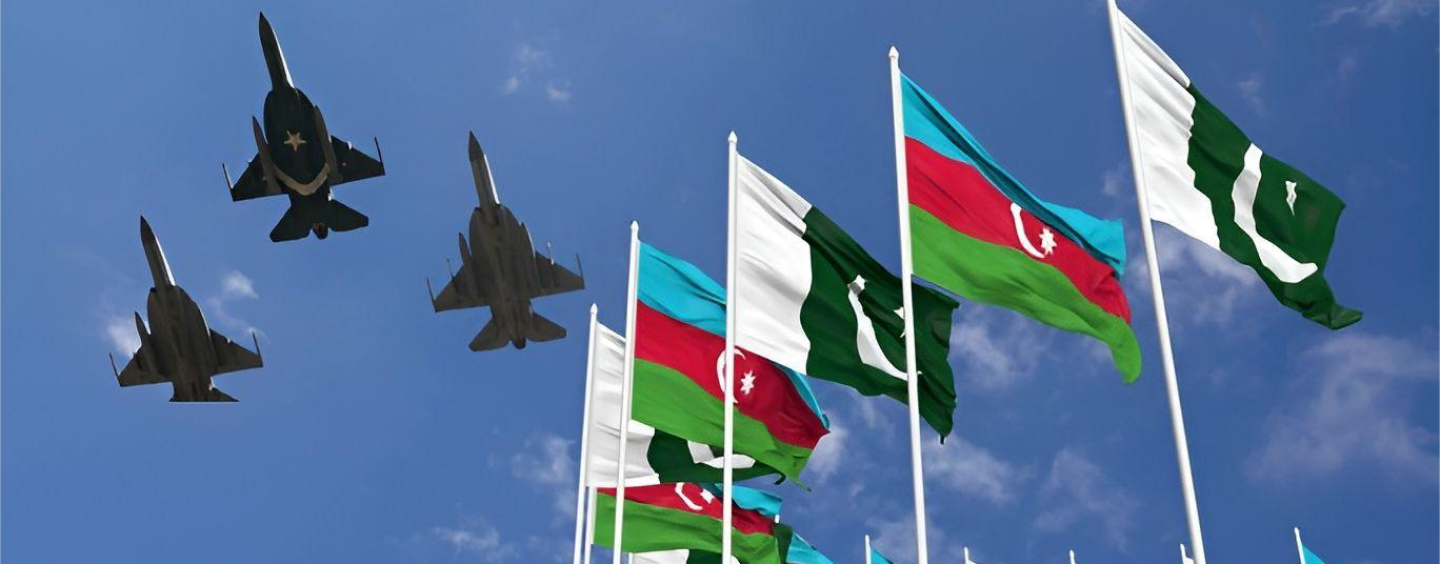By Muhammad Mohsin Iqbal, Director General Research National Assembly Secretariat
Parliament House Islamabad (Pakistan).
The relations between Pakistan and Azerbaijan are a fine reflection of mutual trust, shared values, and unwavering support that have endured through decades. Bound by the common threads of faith, culture, and historical ties, both nations have nurtured a partnership that transcends political changes and regional complexities. From the very inception of Azerbaijan as an independent state in 18 October 1991, Pakistan has stood among the first countries to recognize its sovereignty—laying the foundation of a friendship that has only deepened over time.
This historic connection has evolved into a multidimensional relationship, encompassing political cooperation, defense collaboration, economic partnerships, cultural exchange, and mutual support on international platforms. Pakistan and Azerbaijan have consistently backed each other’s core national interests. Pakistan has firmly supported Azerbaijan’s stance on Nagorno-Karabakh, recognizing it as an integral part of Azerbaijani territory, while Azerbaijan has reciprocated by backing Pakistan’s position on Jammu and Kashmir in the United Nations and other global forums. This enduring solidarity has made the relationship not merely diplomatic, but truly brotherly in spirit.
The upcoming participation of Prime Minister Shehbaz Sharif in the victory parade in Baku on 8 November is another reflection of this shared pride and strategic closeness. The event marks Azerbaijan’s remarkable triumph in the 2020 Patriotic War, reclaiming its territories and restoring its sovereignty. Pakistan was among the few nations that extended full moral and political support to Azerbaijan during the conflict, with Pakistani flags waved proudly across Baku in gratitude for the solidarity shown. The Prime Minister’s visit now reaffirms Islamabad’s commitment to deepening the friendship and exploring new horizons of cooperation.
Recently, the trilateral meeting of the Speakers of the Parliaments of Pakistan, Azerbaijan, and Türkiye held in Islamabad on 12-14 October 2025 underscored the growing importance of parliamentary diplomacy among these fraternal nations. The Islamabad Declaration adopted during the meeting emphasized collaboration in areas of trade, energy, defense, and regional peace. This initiative builds upon the long-standing trilateral mechanism among the three brotherly countries, which share a common cultural and religious heritage and a vision of collective progress. It also reflects Pakistan’s active role in promoting unity and coordination among friendly nations in the broader Turkic world.
The visit of Chairman Senate Syed Yusuf Raza Gilani to Azerbaijan further added momentum to the parliamentary and people-to-people ties. His engagements in Baku reaffirmed Pakistan’s support for Azerbaijan’s territorial integrity and highlighted mutual commitment to expanding economic cooperation, particularly in trade, tourism, energy, and education. During his meetings with Azerbaijani leadership, both sides discussed enhancing connectivity through transport corridors and developing joint projects in agriculture and renewable energy—areas that promise substantial benefits to both nations.
Economic cooperation has become an emerging cornerstone of this relationship. Trade volumes, though modest in the past, are now witnessing a steady increase. Pakistan exports pharmaceuticals, textiles, rice, and surgical goods to Azerbaijan, while importing petrochemical products and other energy-related items. The two sides are also exploring possibilities of joint ventures in oil and gas exploration, as well as cooperation in renewable energy and infrastructure development. Direct air links between Islamabad and Baku have significantly boosted tourism and business exchanges, while cultural collaborations continue to bring the people of both nations closer.
Defense cooperation remains a vital aspect of the bilateral relationship. The armed forces of Pakistan and Azerbaijan maintain strong institutional ties, reflected in joint military training programs, defense production collaboration, and regular exchange of delegations. Both nations also share a common perspective on regional peace and stability, advocating for dialogue and mutual respect as guiding principles for resolving disputes. Pakistan’s defense industry has already supplied military equipment to Azerbaijan, further strengthening strategic trust between the two brotherly countries.
Cultural and educational exchanges have also flourished over the years. The Pakistani community in Azerbaijan enjoys a warm and hospitable environment, while Azerbaijani students have increasingly chosen Pakistan’s universities for higher education, particularly in medicine and engineering. In both nations, special days such as Pakistan Day and Azerbaijan’s Independence Day are celebrated with enthusiasm, symbolizing a bond that resonates beyond political boundaries.
In the global arena, both countries cooperate closely within the framework of international organizations, including the United Nations, Organization of Islamic Cooperation (OIC), and Economic Cooperation Organization (ECO). They share a common stance on combating Islamophobia, countering terrorism, and promoting peace and justice worldwide. This coordination in multilateral forums has not only strengthened their individual voices but also enhanced the collective strength of the Muslim world.
As the world navigates through shifting geopolitical dynamics, Pakistan and Azerbaijan continue to uphold a relationship grounded in mutual respect and shared aspirations. Their partnership represents an example of how trust and sincerity can shape a sustainable alliance even in turbulent times. The participation of Prime Minister Shehbaz Sharif in the upcoming victory parade, following the successful trilateral parliamentary meeting and recent high-level exchanges, sends a strong message to the world—that the friendship between Pakistan and Azerbaijan is not situational or symbolic, but strategic and sincere.
Looking ahead, both countries have immense potential to expand cooperation in energy, technology, education, and connectivity through regional transport projects linking South and Central Asia. The vision of transforming brotherhood into tangible progress can be realized through deeper economic integration and continued political harmony. As Pakistan and Azerbaijan celebrate their enduring friendship, it becomes evident that this relationship is more than a diplomatic tie—it is a shared journey of faith, resilience, and mutual respect, destined to grow stronger with each passing year.






